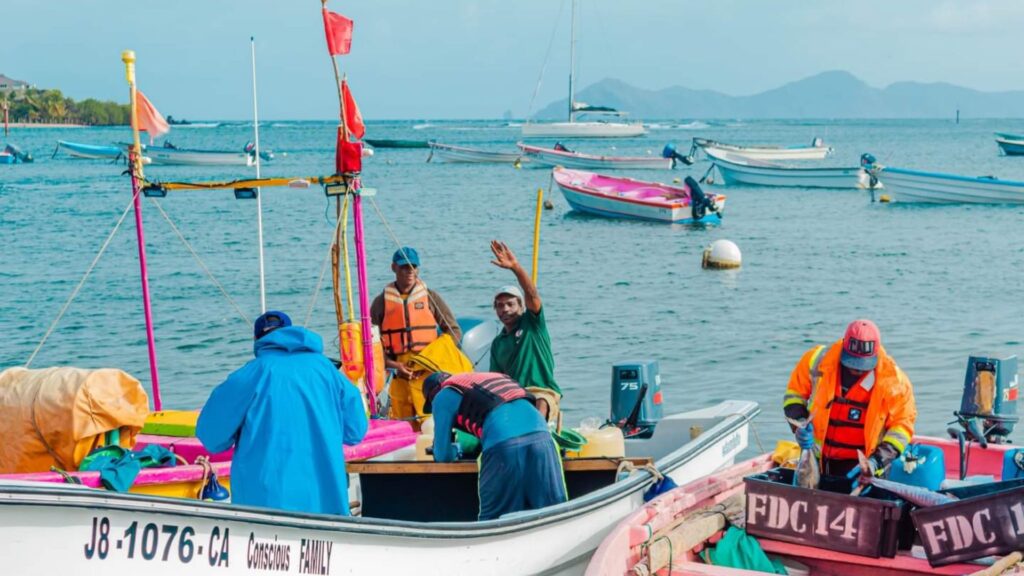Leading Climate Action in the Lobster Fishing Industry: A Success Story from Belize
The National Fishermen Producers Cooperative Society (NFPCS) in Belize is demonstrating that sustainable seafood production is not just possible—it is essential. As the second-largest fishers’ cooperative in the country, NFPCS has taken a proactive approach to reducing its environmental footprint. In 2024, the cooperative earned the Carbon Measured Certification from Green Initiative, marking a significant milestone in its commitment to responsible fishing and climate action. By conducting a thorough carbon footprint assessment, NFPCS has identified key areas for improvement, leading to more sustainable fishing and processing practices. The cooperative’s efforts set a strong example for other seafood producers looking to minimize emissions while maintaining profitability. Understanding NFPCS’ Carbon Footprint A comprehensive emissions assessment highlighted the primary sources of NFPCS’ greenhouse gas (GHG) emissions: 1. Electricity Consumption for Processing and Refrigeration (48.8%) 2. Fossil Fuel Consumption by Fishing Vessels (38.2%) 3. Packaging Materials (3%) 4. Additional Emissions Sources NFPCS’ carbon footprint assessment also revealed emissions from other sources, including: Addressing these areas through efficiency upgrades and waste reduction programs will further strengthen NFPCS’ sustainability efforts. How NFPCS Compares to Global Seafood Industry Benchmarks NFPCS has successfully reduced its emissions to 2.95 kg CO2e per kg of final packaged lobster product. This is significantly lower than global industry benchmarks, where lobster fisheries typically emit between 6.92 kg CO2e to 13 kg CO2e per kg. This achievement highlights the effectiveness of NFPCS’ sustainability initiatives and demonstrates that strategic investment in energy efficiency, optimized fishing methods, and clean energy solutions can lead to substantial emissions reductions. Strategies for a More Sustainable Fishing Industry NFPCS’ approach serves as a model for other fisheries seeking to reduce their carbon footprint. Below are key strategies that can be adopted across the seafood industry: 1. Investing in Energy-Efficient Fishing Technology 2. Optimizing Fishing Operations 3. Training and Awareness Programs 4. Transitioning to Renewable Energy NFPCS’ Commitment to a Sustainable Future The Carbon Measured Certification is only the beginning of NFPCS’ journey toward greater sustainability. The cooperative is committed to: Through these efforts, NFPCS is proving that climate action in the fishing industry is both achievable and beneficial—not only for the environment but also for the long-term viability of seafood production. Read the Full Success Case Study For a detailed breakdown of NFPCS’ carbon footprint assessment and sustainability strategies, read the full case study in PDF here. For more insights on climate action in the seafood industry and sustainable business practices, contact us Green Initiative.
Leading Climate Action in the Lobster Fishing Industry: A Success Story from Belize Read More »

